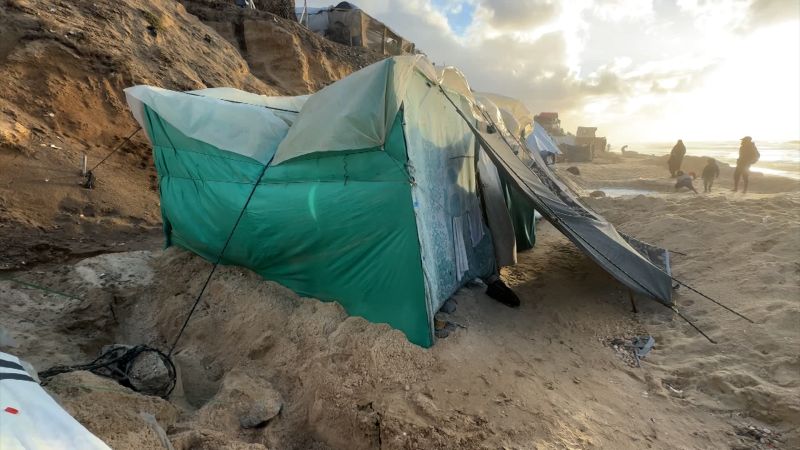Winter in Gaza means more people will die shivering’: Cold and rain pose added threat to displaced Palestinians.
The arrival of winter brings an added layer of hardship for the displaced Palestinians in Gaza. Facing subpar living conditions and limited resources, the cold and rainy weather poses a significant threat to the already vulnerable population.
Inadequate shelter is a primary concern during the winter months in Gaza. Many displaced Palestinians live in makeshift dwellings or overcrowded shelters that offer little protection from the harsh elements. These structures are not equipped to withstand heavy rains, strong winds, or freezing temperatures, leaving residents exposed to the cold and damp conditions.
Lack of access to fuel for heating exacerbates the problem. Due to energy shortages and high costs, many families are unable to warm their living spaces adequately. This results in people resorting to unsafe heating methods, such as burning trash or using makeshift stoves, which pose fire and health hazards.
The cold weather also takes a toll on the health of the displaced population. Respiratory illnesses, such as pneumonia and bronchitis, become more prevalent during the winter months, especially among infants, children, and the elderly. Limited access to healthcare facilities and medications further jeopardizes the well-being of those in need.
Furthermore, the winter weather disrupts daily life for displaced Palestinians in Gaza. Heavy rainfalls often lead to flooding, causing damage to homes and displacing families once again. The muddy and slippery conditions make the already challenging task of obtaining food, water, and other essentials even more difficult.
International aid agencies and local organizations play a crucial role in providing assistance during the winter months in Gaza. Emergency shelters, blankets, warm clothing, and fuel vouchers are essential items distributed to help mitigate the impact of the cold weather on vulnerable populations. Additionally, health services and medical supplies are made available to address the increased demand during the winter season.
Despite the support from aid organizations, the ongoing political and economic challenges in Gaza continue to hinder efforts to improve living conditions for displaced Palestinians. The lack of sustainable solutions to the displacement crisis leaves many families vulnerable to the harsh realities of winter, year after year.
As we continue to witness the struggles of displaced Palestinians in Gaza during the winter months, it is crucial to advocate for long-term solutions that address the root causes of displacement and provide sustainable support to those in need. Only through collective action and commitment can we ensure that no one dies shivering in Gaza during the unforgiving winter months.
